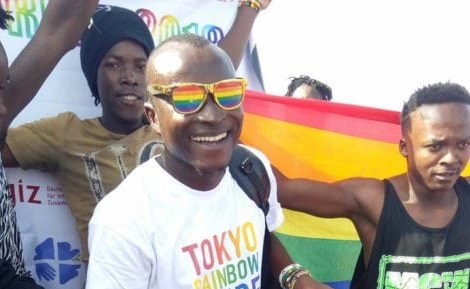LGBT refugees attacked and sent death threats after holding Pride parade in camp
Two men have been attacked and the rest have been sent death threats
By Steve Brown

A group of LGBT refugees have been attacked and sent death threats after holding a Pride event in their camp.
The group – who are from the group Refugee Flag Kakuma and are currently in Kenya’s Kakuma refugee camp – faced physical violence and were sent death threats from other camp members following the first Pride parade in the camp, PinkNews reported.
The camp is home to many LGBT refugees who were forced to flee their home countries due to fear of homophobic persecution.
The Pride was organised by members of the LGBT community and was funded through the help of a crowdfunding website.

However, short after the celebration, a sign was spotted placed on one of the camp’s notice boards demanding they leave the camp and threatened to kill them in they stayed.
It read: “Warning. This is to inform all men and women (gays) living in Kakuma 3, Zone 1, Block 1.
“Whatever you have been doing has to come to an end. We have kept quiet for some time. You must leave the camp because you have spoiled our religion and children.

“If you don’t leave the camp, we are going to kill you one by one and we mean it. Enough is enough.”
Pride organiser Wamalabashier Gibson said: “People are so in the closet, they don’t want to show up for security reasons and protecting reasons.
“So when I say we are the voice of the voiceless, it is we who have come out to tell people that we are of no harm and we are human beings.”

Two members of the group had already faced physical violence for being publicly involved in the event.
A spokesperson for the Refugee Flag Kakuma said in a statement: “The longer it’s there the more effect it has, two people were attacked the night after the event, a lesbian and transgender person.”
The LGBT+ community face violence and persecution in Uganda and it is illegal to be gay in Kenya and the President said in April that being gay is “not acceptable” and “not agreeable” in their culture.
